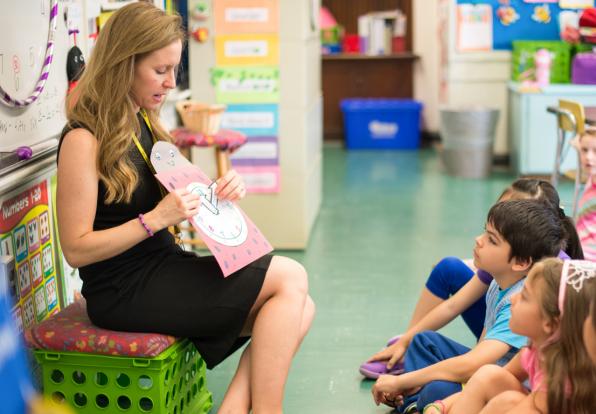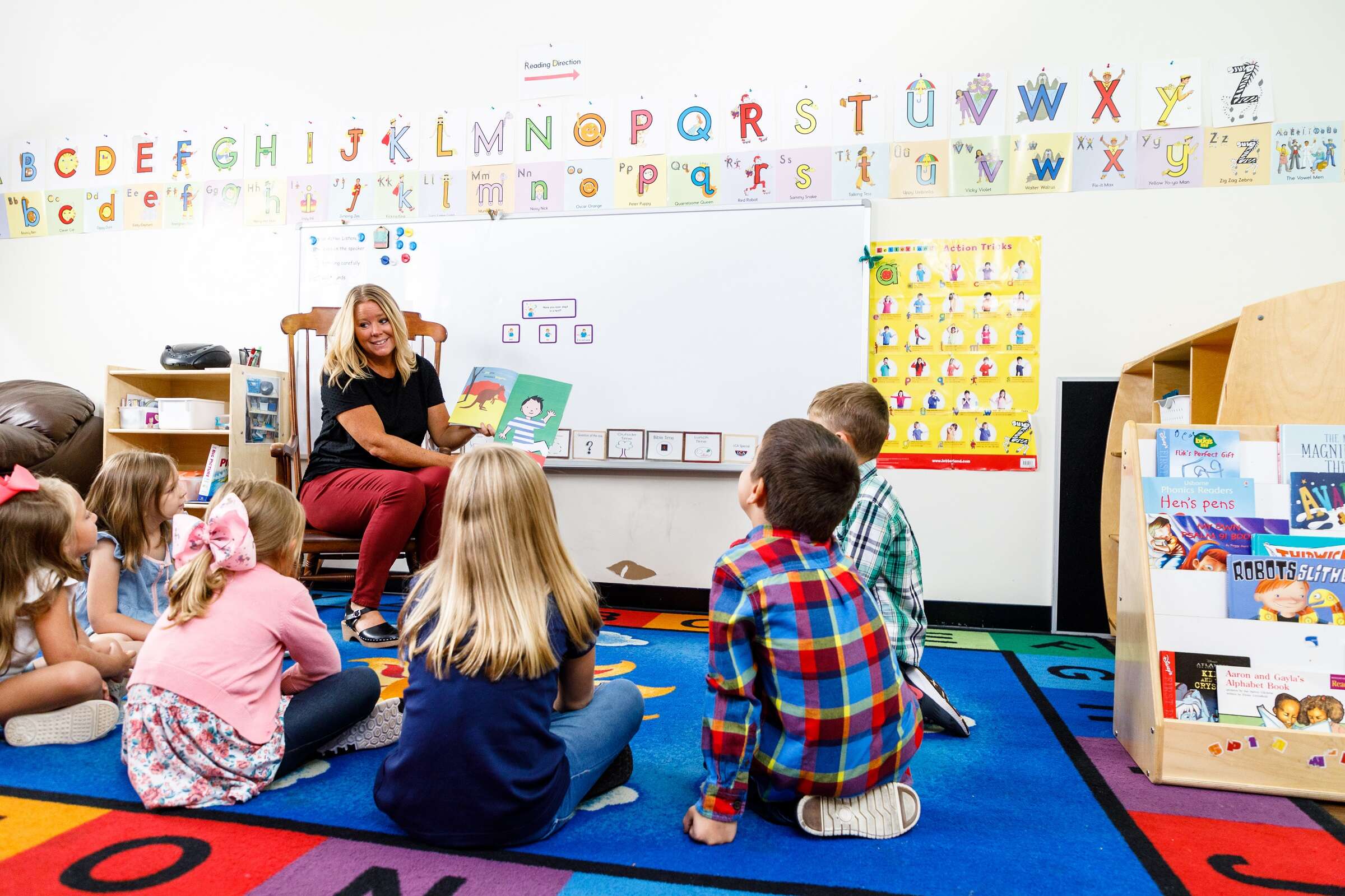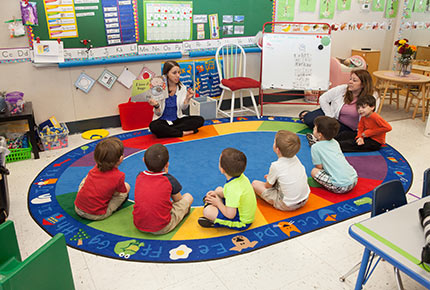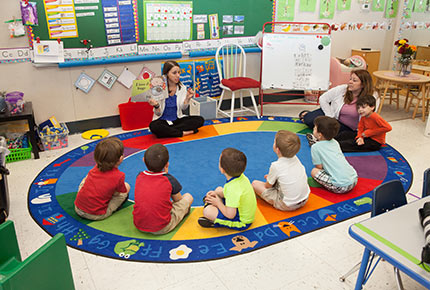What is Early Childhood Education Major : Unlocking Career Opportunities

An Early Childhood Education major prepares individuals to work with young children in educational settings. It focuses on child development and effective teaching methods.
Early Childhood Education majors learn about child psychology, curriculum development, and classroom management. This field is crucial for shaping the future generation and providing a strong educational foundation for young learners. Graduates can pursue careers as preschool teachers, childcare center directors, or early intervention specialists.
The demand for qualified early childhood educators continues to grow, making this major a valuable and rewarding choice for those passionate about working with young children. By earning a degree in Early Childhood Education, individuals can make a positive impact on children’s lives and contribute to building a better society.

Credit: www.liberty.edu
What Is Early Childhood Education Major?
Early Childhood Education Major is a specialized field of study that focuses on the educational and developmental needs of young children, typically from birth through age eight. This major prepares students to work as educators and advocates for young children, equipping them with the knowledge and skills necessary to promote early learning and development.
Definition
Early Childhood Education Major is a program of study that encompasses the principles and practices of educating young children. It involves learning about child development, curriculum design, assessment techniques, and effective teaching methods specifically tailored to the needs of young learners.
Importance
Early Childhood Education Major is important because it lays the foundation for a child’s future academic success and overall well-being. Professionals in this field play a crucial role in shaping young minds, fostering a love for learning, and supporting children’s social, emotional, and cognitive development during their formative years.
Skills Required For Early Childhood Education Major
Early Childhood Education majors require a diverse set of skills to effectively work with young children and provide them with a strong educational foundation. These skills encompass various aspects, including communication, patience, creativity, and organizational abilities.
Communication Skills
Effective communication skills are vital for early childhood educators to interact with children, parents, and fellow educators. This includes the ability to convey information clearly, listen attentively, and adapt communication styles to suit different audiences.
Patience And Flexibility
Patience and flexibility are essential qualities for early childhood educators, as they often need to navigate unpredictable situations and work with children who may exhibit challenging behaviors. These traits enable educators to maintain a calm and supportive environment while adapting to the ever-changing needs of young learners.
Creativity
The creative aspect of early childhood education involves developing engaging and innovative teaching methods that capture children’s attention and foster their imagination. Educators need to think outside the box to create stimulating learning experiences that cater to diverse learning styles.
Organizational Skills
Strong organizational skills are crucial for managing classroom activities, lesson plans, and administrative tasks. Early childhood educators must maintain a well-structured learning environment and keep track of individual student progress, requiring meticulous planning and efficient time management.
Career Opportunities In Early Childhood Education Major
Early Childhood Education Major offers a wide array of career opportunities that are both rewarding and impactful. Graduates can pursue careers as teachers, social workers, childcare center directors, and curriculum developers, making a significant difference in the lives of young children. These roles play a crucial part in shaping the future of the next generation.
Teacher
A career as a teacher in early childhood education involves nurturing and educating young children during their formative years. Teachers create a positive learning environment, develop age-appropriate curriculum, and foster social and emotional growth in children.
Social Worker
Social workers in early childhood education focus on supporting families and children facing various challenges. They assess children’s needs, provide counseling, and collaborate with other professionals to ensure the well-being of children and their families.
Childcare Center Director
Childcare center directors oversee the daily operations of childcare facilities, ensuring compliance with regulations, managing staff, and creating a safe and nurturing environment for children. They also handle administrative tasks and maintain strong relationships with parents and the community.
Curriculum Developer
Curriculum developers in early childhood education design engaging and developmentally appropriate learning materials and activities. They stay updated with educational trends, conduct research, and create innovative curriculum that meets the educational needs of young children.

Credit: www.easternct.edu
Salary Expectations For Early Childhood Education Major
Early Childhood Education is a rewarding field, and many individuals pursuing this major are interested in understanding the potential salary expectations. The salary for Early Childhood Education professionals can vary based on several factors, including experience, location, and level of education. Below, we’ll explore the average salary for this major and the factors that can affect it.
Average Salary
According to the U.S. Bureau of Labor Statistics, the average annual salary for preschool teachers, a common career path for Early Childhood Education majors, is $30,520. However, this figure can differ based on the specific role, such as lead teacher, assistant teacher, or director, as well as the type of institution, whether it’s a public school, private preschool, or daycare center.
Factors Affecting Salary
Several factors can influence the salary of an Early Childhood Education major. Experience plays a significant role, with more experienced professionals typically commanding higher salaries. Location also impacts earnings, as salaries can vary based on the cost of living and demand for teachers in a specific area. Additionally, education level can play a part, with those holding advanced degrees potentially earning higher salaries.
Job Outlook For Early Childhood Education Major
The job outlook for individuals majoring in Early Childhood Education is promising, with a growing demand for qualified professionals in the field. Graduates can pursue diverse career opportunities in preschools, daycare centers, and educational settings, making a positive impact on young children’s development.
Demand For Early Childhood Educators
The demand for early childhood educators is on the rise. According to the Bureau of Labor Statistics, the employment of preschool teachers is expected to grow by 7 percent from 2020 to 2030, which is faster than the average for all occupations. This increasing demand is due to the growing number of children requiring early education programs and the government’s emphasis on early childhood education.Future Growth Opportunities
The future growth opportunities for early childhood educators are immense. As the demand for early childhood education continues to grow, so will the need for highly qualified and trained professionals. Early childhood education majors can expect to find employment opportunities in a variety of settings, including public and private schools, daycare centers, and community organizations. In addition to traditional teaching roles, early childhood education majors may also find opportunities in curriculum development, program management, and policy-making. With the increasing awareness of the importance of early childhood education, there is also a growing demand for early childhood education consultants and specialists. In conclusion, pursuing a major in early childhood education can open up a wide range of job opportunities. The demand for early childhood educators is expected to continue to grow in the coming years, providing excellent job prospects for those with the necessary qualifications and skills.Education And Certification Requirements For Early Childhood Education Major
Early Childhood Education Major requires specific education and certification to prepare individuals for a career in working with young children. Let’s delve into the requirements needed to pursue this field.
Degree Requirements
Individuals aspiring to pursue Early Childhood Education Major typically need to obtain a bachelor’s degree in early childhood education or a related field. This degree provides the foundational knowledge and skills necessary to work effectively with young children.
Licensing And Certification
Upon completing the required degree program, individuals may need to obtain licensure or certification to work as early childhood educators. This ensures that professionals meet the necessary standards to provide quality care and education to young children.

Credit: ecoleglobale101.medium.com
Frequently Asked Questions
What Degree Is Best For Early Childhood Education?
A bachelor’s degree in early childhood education is best for pursuing a career in this field. It provides the necessary knowledge and skills to work with young children and is highly valued by employers in the early childhood education sector.
Why Is Early Childhood Education A Good Major?
Early childhood education is a good major as it provides essential skills for shaping young minds. It offers diverse career opportunities and contributes to society’s future development.
Which Course Is Best For Early Childhood Education?
The best course for early childhood education is a Bachelor’s degree in Early Childhood Education.
What Is The Highest Paying Job In Early Childhood Education?
The highest paying job in early childhood education is typically a director or administrator position. These professionals oversee operations and staff, ensuring high-quality education and care for young children. They may also be responsible for program development and maintaining regulatory compliance.
Conclusion
Early childhood education is a crucial field that shapes the future of our society. By providing quality education and nurturing young minds, early childhood educators lay the foundation for lifelong learning and success. Pursuing a major in early childhood education equips individuals with the necessary skills to make a positive impact on the lives of children and their families.
Lorem Ipsum is simply dummy text of the printing and typesetting industry. Lorem Ipsum has been the industry’s standard dummy text ever since the 1500s, when an unknown printer took a galley of type and scrambled it to make a type specimen book.






